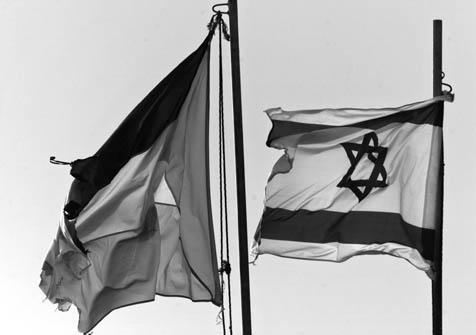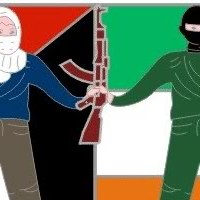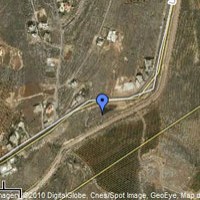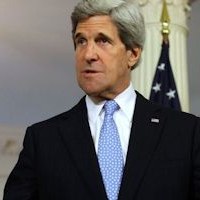The following, minus some out of date sentences, was written by Prof. Beres 21 years ago for The Jewish Press. Substitute PA for PLO, Hamas for terror groups, Abbas for Arafat and it could have been written today – and should be. Sent by Eli Hertz.
Re-published: february 23, 2010; Arutz Sheva.
by Prof. Louis Rene Beres
Beres Gives Background for Article at Time of Writing:
A pair of prominent Israeli commentators recently pointed out that continued control of the territories would have grave consequences for Israel’s security. In this connection, Yehoshafat Harkabi, a former chief of military intelligence, argues in his newest book, ISRAEL’S FATEFUL HOUR, that a refusal to end “occupation” of West Bank (Judea/Samaria) and Gaza will produce escalating terrorism and further incentives for war by neighboring Arab states. Abba Eban, Foreign Minister of Israel from 1966 to 1974, insists in a January 2, 1989 editorial in THE NEW YORK TIMES (“Israel, Hardly the Monaco of the Middle East”) that Israel would have nothing to fear from an independent “Palestine.” Such a state, he claimed, “would be the weakest military entity on earth.”
The Article:
In these assessments, Harkabi is certainly correct, but nowhere does he compare the risks to Israel of an ongoing “occupation” with those of a Palestinian state. If he had offered such a comparison, perhaps he would have understood that continuing Israeli administrative control of Judea/Samaria/Gaza would certainly have its risks, but that a bordering state of Palestine would be far worse. As for Mr. Eban, he is wrong altogether.
If there were to be an Arab-ruled state in Judea/Samaria/Gaza, its danger to Israel would surely lie less in its own army than in the several other Arab armies and assorted insurgents that would soon burrow themselves into a new and authentic form of occupation. To suggest that the risks to Israel can be ascertained by simply comparing the Israeli army to the far more modest forces of a prospective Palestine is to assume a totally static condition in the new state, one that naively offers only the “best case” scenario for Israel.
These assessments, therefore, are hardly in Jerusalem’s best interests. Israel is not “the Monaco of the Middle East,” but neither would Palestine be as benign a mini-state. Before Israel can reasonably conclude that the so-called “occupation” is intolerable, its leaders will first have to determine whether it is actually less tolerable than Palestinian statehood. If it isn’t less tolerable, then rationality would require continuing administrative control, however painful, costly and unfortunate. And such rationality would not even take into account the overwhelmingly all-important fact that Judea and Samaria are inherent parts of the Jewish State under binding international law.
What, exactly, are the major strategic risks to Israel posed by an independent Palestine? To answer this question, one must first understand that several of the Arab states are still preparing for war with Israel, and that a new Arab state in Judea/Samaria/Gaza would open another hot border for the Jewish state. As a result, the Arab-Israeli balance of forces could change decisively, possibly even providing the needed incentive for certain Arab first-strikes.
Ballistic missiles that could carry chemical warheads now exist in Syria, Iraq, non-Arab Iran, Libya and Saudi Arabia. Significantly, Syria, which is now the most serious Arab country threat to Israel, has also been receiving massive stocks of new conventional weapons, including main battle tanks, combat aircraft, anti-aircraft systems and tactical missiles. Still anxious to recover the Golan which it lost in 1967, the regime of Hafez al-Assad has already deployed 4,200 tanks on its border with Israel.
Ultimately, enemy ballistic missiles could carry nuclear weapons. Saudi Arabia recently purchased CSS2-class surface-to-surface missiles from China that could reach any part of the Middle East from Riyadh.
Let us turn to Iran, certain to become a major strategic threat to Israel. Until the revolution in January 1979, Iran’s nuclear program was the most ambitious in the entire Middle East. In addition to open, commercial activities, the Shah most likely initiated a full-scale nuclear weapons research program. This program included work on two technologies for producing weapons-grade nuclear materials, enrichment and reprocessing, and on the actual design of nuclear weapons.
Khomeini inherited substantial nuclear assets. The precise configuration of this nuclear infrastructure, including weapons-relevant technology and equipment, is still known only to selected persons within the Messianic Khomeini regime. What is known is that this regime is diligently reactivating the nation’s nuclear program. Where will this reactivation end?
From Iran’s point of view, nuclear weapons must appear as an essential counterweight to (its enemies) superiority in conventional armaments. Moreover, nuclear weapons would seem to have special value in enhancing the Khomeini regime’s status in the region, and its associated capacity to advance the objectives of militant Islamic fundamentalism. It should not be surprising, therefore, that Iran, in 1984, opened a new research center at Isfahan.
What delivery systems are available to Iran? At the moment, the Tehran regime has two lines of advanced combat aircraft that can deliver a nuclear bomb: the F-4D/E Phantom II, and the F-5E/F Tiger II. It also has a ballistic missile force that could deliver nuclear warheads. Although there is no available information that Iran is making substantial progress in the manufacture of such warheads, that country has maintained and expanded its very costly nuclear research program at a time of increasing economic dislocation and hardship. Iran remains a potential nuclear power that should not be dismissed out of hand.
What about Syria? Recognizing that it cannot rely entirely on the air force to penetrate Israeli air space, Syria knows that its Soviet-designed Scud-B missile could, if fired from Syria, reach all of Israel, except the southern Negev, in six minutes. A direct descendant of the German V-2, the Scud is a weapon that could do enormous damage to Israeli civilian populations. In this connection, it could carry, if Syria should ever acquire nuclear warheads, the implements of atomic war. At some point, Syria will very likely attempt, in great secrecy, to acquire some nuclear weapons capability.
If “Palestine” should provide the essential incentive for an Arab/Islamic war against Israel, a war that would end with the actual use of nuclear weapons, it could wind up as “Armageddon.”
But even if there would be no escalation to nuclear war-fighting, Palestine could still become another Lebanon. Here, many different Palestinian factions, both within and outside the P.L.O. umbrella, would contend for control over the new Arab state. Various insurgents that do not threaten Israel’s very survival in an intifadah would now be able to inflict great harm on their neighbor to the west.
Let me be more precise. Should an independent Palestine be created from Judea/Samaria/Gaza, its president would almost certainly be Yasser Arafat, and its principal leaders would be drawn from the P.L.O. chairman’s faction, al-Fatah. Probably within hours of the new state’s effective beginnings, its government and its ruling elite would be targeted by P.L.O. radicals, and by various Palestinian parties opposed to P.L.O.
Many factions, including some newly developing Islamic fundamentalists spun off from Egypt’s Moslem Brotherhood, would contend for control over any new state of Palestine, and all of these factions could resort unhesitatingly to high levels of violence. Before long, the resident Palestinian population would suffer far more than it had under Israeli rule, and anarchy would pose a real threat to Jordan. Over time, it is likely that Jordan could be undermined altogether, and even become part of a “greater Palestine.” Ironically, the result of these events – of another Lebanon – would be enormously tragic for both Palestinians who seek a homeland, and for Israelis who seek secure frontiers.
It follows from all of this that Palestine would pose a very serious security risk to Israel, and that this risk could become far greater than that of maintaining possession of “the territories.” This does not mean that Israel and the Palestinians should steer clear of meaningful negotiations, or that Israel should avoid concerning itself with protecting the essential human rights of the Arab populations under its control. But it does mean that any reasonable assessments of Israel’s security must always compare the expected costs of both principal options for Judea/Samaria/Gaza: IDF military administration versus independence. In the absence of such an essential comparison, Israel could go from bad to worse, from a situation that is debilitating and demoralizing, to one that is altogether intolerable.
Mazzeltov,
Crethi Plethi



 RSS
RSS













Palestine: a Threat to Israel http://bit.ly/cyxSfp